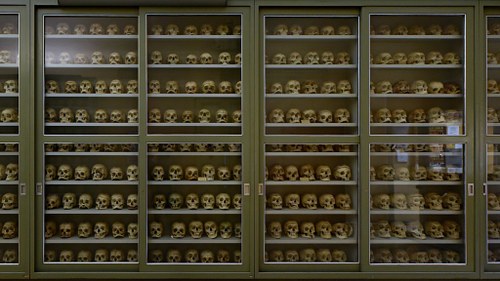
The "Luigi Calori" Skull Collection, housed at the Center for Clinical Anatomy and Experimental and Molecular Surgery at the University of Bologna, represents one of the most important Italian and European craniological collections, consisting of over 2000 skulls collected in the 19th century by Luigi Calori (1807-1896), an anatomist and professor at the University. This historical collection, which includes bone specimens from different time periods and geographical origins, constitutes an invaluable scientific heritage and is unique for the study of anatomy and physical anthropology.
The project aims to systematically characterize the Collection and create a bridge between traditional anthropological study methodologies and modern digital technologies. The use of Italy's first CT scanner dedicated to basic research allows for high-resolution three-dimensional reconstructions of the specimens, enabling both their digital preservation and non-invasive analysis of morphological characteristics.
The main objective is to create a comprehensive database that serves multiple purposes: from enhancing the museum value of the collection through new digital access methods, to educational use for studying human skeletal variability. Furthermore, the implementation of artificial intelligence-based models aims to develop innovative tools for automated biological profile analysis, optimizing and standardizing anthropological study procedures.
This multidisciplinary approach not only preserves and enhances the historical heritage of the collection but also opens new perspectives for modern anthropological research.